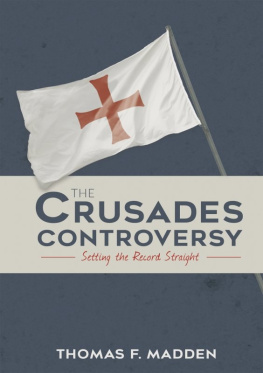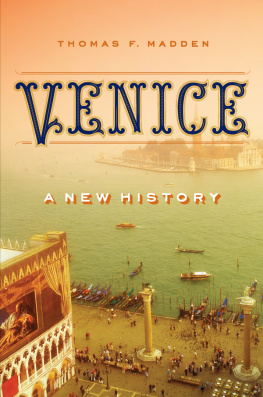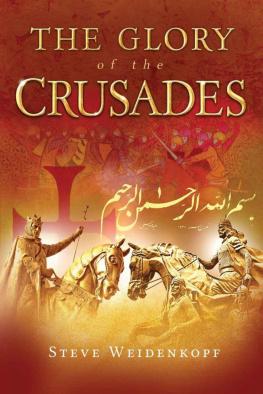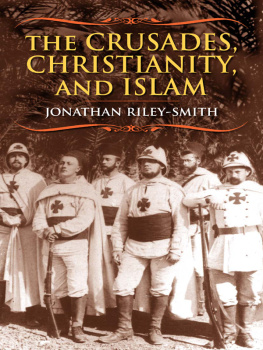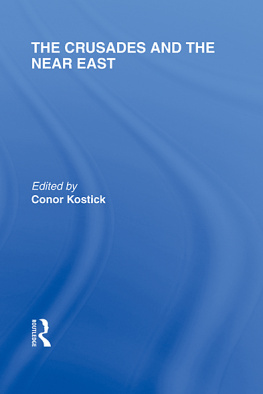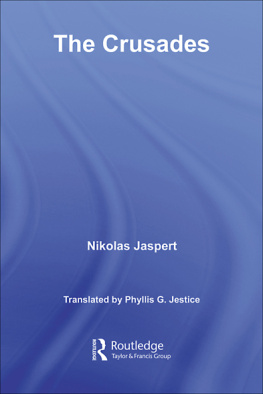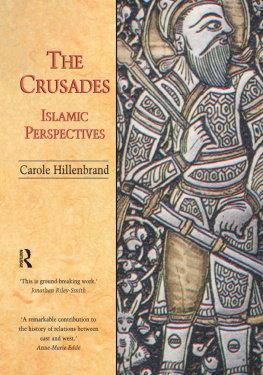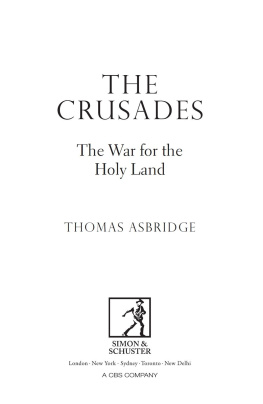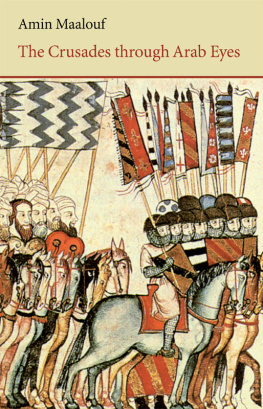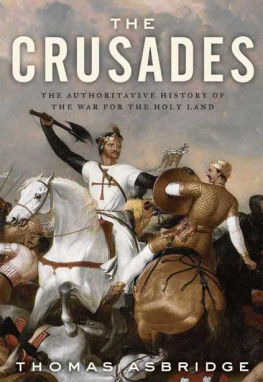THE
CRUSADES
CONTROVERSY
Copyright 2017 Thomas F. Madden
Published by Beacon Publishing
All rights reserved.
No part of this book may be used or reproduced in any manner whatsoever without permission except in the case of brief quotations in critical articles or reviews.
Portions of this text drawn from: Thomas F. Madden, The Concise History of the Crusades (Rowman and Littlefield, 2013), by permission of the publisher.
Design by Ashley Wirfel
ISBN: 978-1-63582-008-9 (softcover)
ISBN: 978-1-929266-13-5 (e-book)
Library of Congress Cataloging-in-Publication Data
Names: Madden, Thomas F., author.
Title: The crusades controversy : setting the record straight / Thomas F. Madden.
Description: North Palm Beach : Beacon Publishing, 2017.
Identifiers: LCCN 2017025860 | ISBN 9781635820089 (softcover : alk. paper) | ISBN 9781929266135 (e-book)
Subjects: LCSH: Crusades. | CrusadesHistoriography. | Christianity and other religionsIslam.
Classification: LCC D157 .M335 2017 | DDC
909.07dc23
Dynamic Catholic and Be Bold. Be Catholic. and The Best Version of Yourself are registered trademarks of The Dynamic Catholic Institute.
The Dynamic Catholic Institute
5081 Olympic Blvd Erlanger Kentucky 41018
Phone: 18599807900
Email:
First printing, August 2017
Printed in the United States of America
TABLE OF CONTENTS
PREFACE
PRIOR TO SEPTEMBER 11, 2001 , the world was a different place. Then, the Crusades were a faraway concept, an odd series of events in a distant and murky medieval past. Wars of religion seemed largely irrelevant to citizens of a modern secular civilization. That has changed. Terrorist attacks in the United States, Europe, and the Middle East continue to remind us all that there remain people in the world willing to kill or to be killed for their religion. Since then radical Muslims, known as Islamists, have continued to call on their coreligionists to take part in a worldwide jihad against the people of the West, whom the Islamists often refer to as crusaders.
For their part, many in the West worry that their actions actually do resemble those of the medieval crusaders. American and European military forces, for example, remain stationed in the Middle East. And Israel, which enjoys significant Western support, is planted on soil that was once the medieval crusaders kingdom. Western diplomats and politicians are careful to avoid any mention of the medieval Crusades around Muslim leaders, lest they appear insensitive or conjure up memories of the harm done by the medieval holy wars against them. Unfortunately, these sentiments and approaches are fueled on both sides by an extremely weak understanding of the actual Crusades or the medieval world in which they flourished. As a result, decisionssometimes tragic decisionsare made based on deeply flawed concepts of history. By explaining just what the Crusades were and were not, this little book is an attempt to illuminate the complex relationship of the past to the present.
ONE
I AM HAPPY TO OFFER my thoughts on something that is a bit of a rarity in my field of medieval historya topic of timely interest. But that is precisely what the Crusades have become. Since the attacks of September 11, 2001, the Crusades have been pulled from the pages of history textbooks and spread across the front pages and television screens of America.
In 1999, I wrote one of those textbooks. It was a short introduction to a topic that was taught in only a few university classrooms around the country. Two years later, as Americans struggled to understand why they had been attacked, it left the classroom and began appearing on bookstore shelves nationwide. It remains there still. Because at the time I was the only living American scholar who had written a book on the Crusades, on September 12 I found my email inbox full and my phone ringing with requests for interviews. I was petrified when I did my first onean NPR segmentbut soon after they became routine. In the hundreds of interviews that I have given on the subject since then, the questions have frequently ended up at the same place: Are the Crusades the root cause of the struggle between Islam and the West? In other words, arent the Crusades really to blame?
THE NEW CRUSADE
Osama bin Laden certainly thought so. He and his supporters never failed to describe the American war against terrorism as a new Crusade against Islam, and Americans themselves as crusaders. And this is not an uncommon view in the Middle East. The Islamic State of Iraq and Syria (ISIS), for example, routinely refers to the United States, Israel, and European nations as crusader states. Ironically, this perspective on the medieval Crusades is actually not far from that of most people in the West. That is no coincidence, for, as I will argue, it is Western culture that provided Osama bin Laden and ISIS with a recovered memory of the Crusades.
OFFENSIVE ATTACK OR DEFENSIVE REACTION?
In popular Western culture today, the Crusades are generally remembered as a series of holy wars against Islam led by power-hungry popes and fought by religious fanatics. They were the epitome of self-righteousness and intolerance, a black stain on the history of the Catholic Church in particular and Western civilization in general. A breed of proto-imperialists, the crusaders introduced Western aggression to the peaceful Middle East and then deformed the enlightened Muslim culture, leaving it in ruins. For variations on this theme one need not look far. See, for example, the 1995 BBC/A&E documentary, The Crusades, hosted by Terry Jones, or the 2005 History Channel documentary, or the 2005 epic Ridley Scott film, The Kingdom of Heaven. Indeed, I can think of no popular media portrayal of the Crusades that does not hold in some measure to this view.
Yet, that is not at all the way that Europeans viewed the Crusades when they were happening. Indeed, far from being an offensive attack on the lands of Islam, Western Christians saw the Crusades as defensive reactions to Muslim aggression.
And they had a point. Christians in the eleventh century were not paranoid fanatics. Muslims really were gunning for them. From the time of Mohammed, the Muslim state had expanded by the sword. Traditional Muslim thought divided the world into two spheres, the Abode of Islam and the Abode of War. Christianity, and for that matter any other non-Muslim religion, has no abode. Christians and Jews can be tolerated within a Muslim state under Muslim rule. But their states must be destroyed and they must be conquered. When Mohammed was waging war against Mecca in the seventh century, Christianity was the dominant religion of power and wealth. As the faith of the Roman Empire, it spanned the entire Mediterranean, including the Middle East, where it was born. The Christian world, therefore, was a prime target for the earliest caliphs, and it would remain so for Muslim leaders for the next thousand years.

